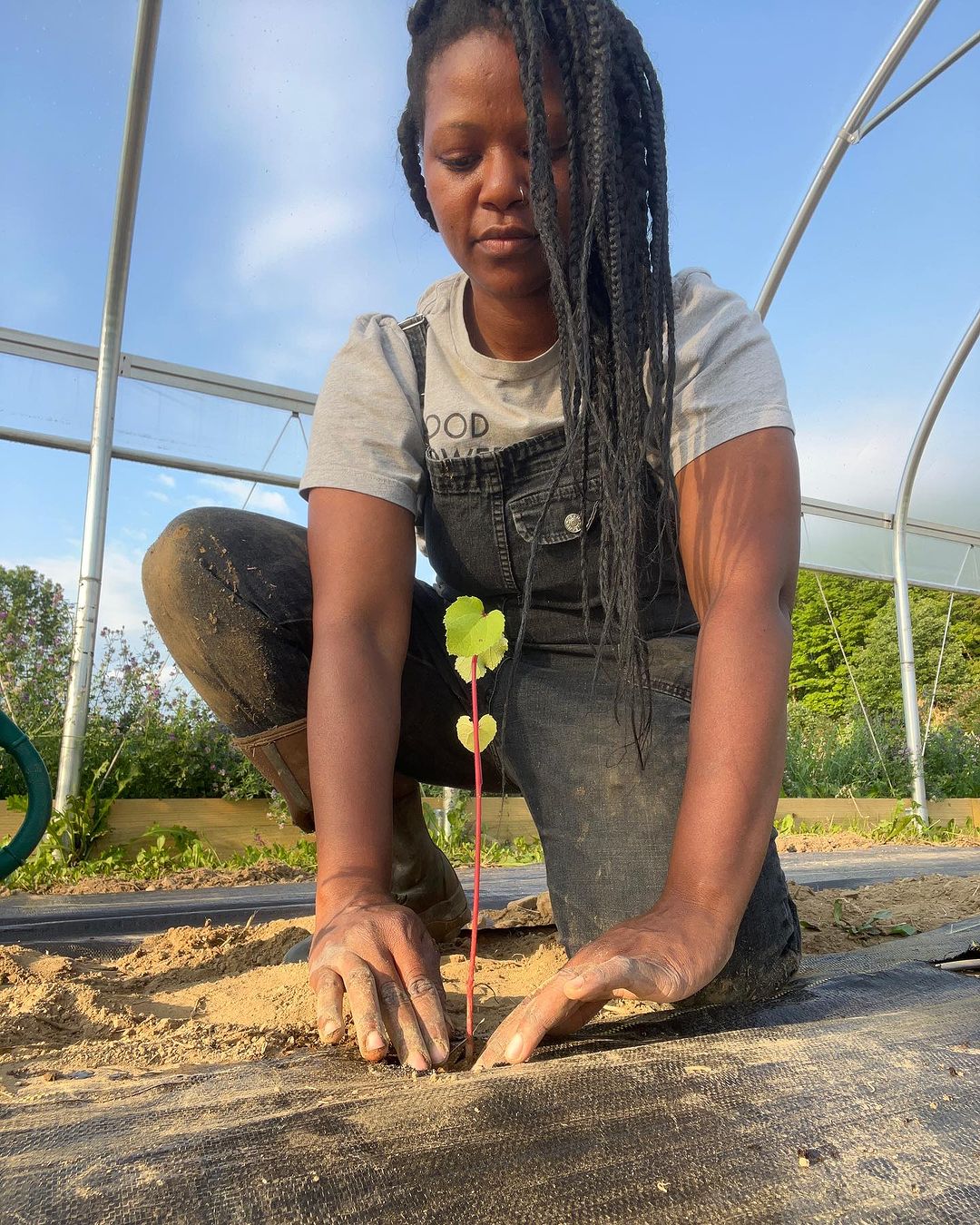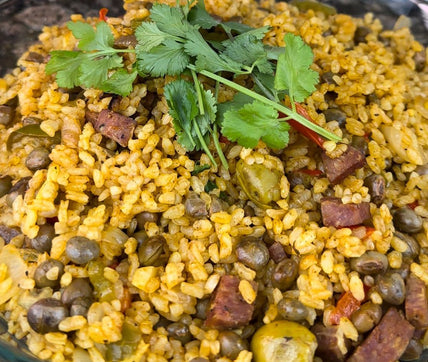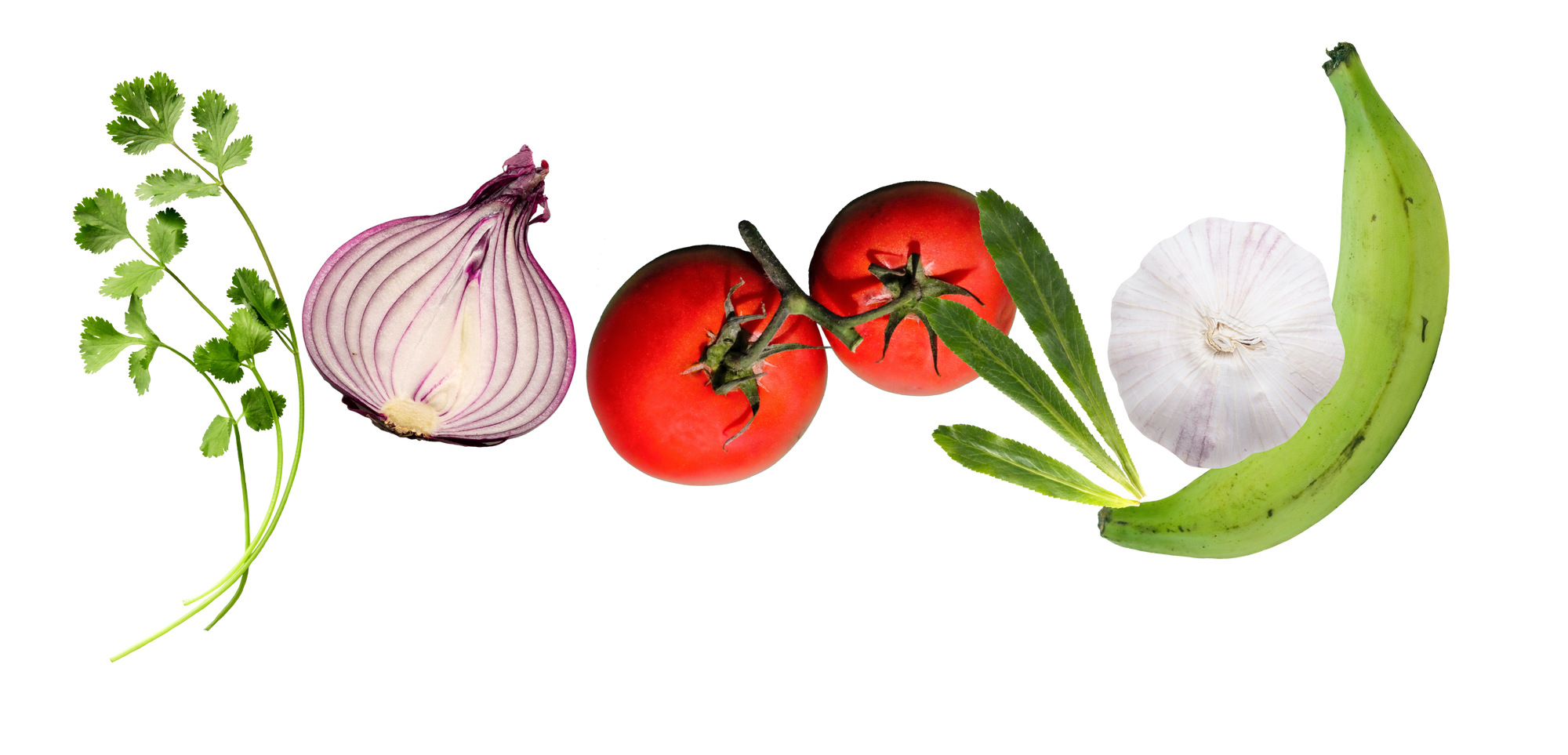
2% for Black Yard Farm
Building a supportive and safe space for the Black community to connect with agriculture.
As part of our ongoing commitment to community, Loisa donates 2% of sales each month to a community organization. In honor of Martin Luther King Jr. Day, this month we are supporting Black Yard Farm, a collective committed to creating space for Black folks to grow an autonomous, culturally relevant food system.
With a focus on regenerative farming, Black Yard Farm is working to create safe learning spaces for Black folks interested in agriculture and provide empowerment in utilizing ancestral farming practices to grow fresh produce in communities where grocery stores are scarce. Founded by Ashanti Williams, a visionary inspired by her family's commitment to community agriculture, Black Yard Farm is more than just a collective – it's a sanctuary for learning, experiencing, and celebrating Black culture.
Ashanti Williams' journey into farming began in the Bronx, where she witnessed the challenges of food apartheid firsthand in the area she grew up in. Limited access to fresh produce motivated her father, grandfather, and community members to transform a vacant lot into a community garden. Williams and her grandfather's initiative extended to a youth-run farmers market, engaging the younger generation in the joy of growing and sharing fresh produce.
Williams' connection with farming deepened in her early 20s when she was first able to work with live animals once they added a chicken coop to the garden. This hands-on experience fueled her passion for agriculture, prompting her to explore larger animals like sheep, goats, cows, and pigs. However, the city's constraints led to a pivotal decision in 2017 – a move to rural farming, paving the way for the birth of Black Yard Farm Collective in 2020.
Williams' grandfather's teachings, rooted in their ancestral farming practices, emphasized climate-friendly and nature-conscious farming practices. However, mainstream agricultural methods initially contradicted these principles. As societal awareness of climate change grew, Williams rediscovered that the "alternative" practices touted as new were, in fact, the same techniques passed down through generations in Indigenous and Afro-Indigenous communities.
Beyond cultivating fresh, organic produce and distributing it to the community, the farm serves as an educational center, bridging ancestral farming practices with modern sustainability through workshops and classes. Participants can engage in hands-on farming experiences, gaining practical skills and a deeper appreciation for agriculture. Recognizing the importance of mentorship, Black Yard Farm provides guidance from experienced farmers to newcomers, fostering personal and professional growth. Furthermore, the farm hosts networking events, creating a collaborative community where like-minded individuals can share knowledge and support each other within the agricultural realm.
On the farm, Williams focuses on regenerative practices, allocating three-quarters of an acre for annual vegetables and the remaining land for agroforestry and grazing. Plans for intentional planting of trees and shrubs aim to expand grazing space for animals and create additional revenue streams. As the sole operator, Williams envisions a future where four or five like-minded farmers join the collective, co-owning and co-managing the property.
Despite facing economic challenges that almost led to Williams losing the farm, an opportunity for secure, affordable land access came up and it reinvigorated her commitment to Black Yard Farm. Williams is currently in the process of raising additional funds to keep the farm going. As the winter season continues, Williams has started a GoFundMe to help cover the cost of feed for the remaining animals and the cost of utility bills to heat the farmhouse. Having this capital will also give Williams some time to rest and recuperate, as well as put more focus into developing a curriculum and bringing on new employees and members so she won’t have to run the farm alone next season.
Williams emphasizes the importance of recognizing that Black individuals belong in green spaces and the agricultural industry. The challenges faced by Black Yard Farm underscore the need for increased access, ownership, and influence in agriculture. Supporting this endeavor is not just an investment in a farm but a step towards a more inclusive and equitable agricultural future.
Black Yard Farm is a testament to the resilience, vision, and determination of Ashanti Williams. Through her unwavering commitment to curating a supportive and safe space for the Black community to connect with agriculture, Williams is sowing the seeds of empowerment and representation with each new season. If you are supportive in Black Yard Farm’s mission to continue liberating Black-centered agricultural spaces, consider making a donation and getting involved!
Become an Ally:
Set up a monthly contribution and receive quarterly farm updates.
Donate:
Make a donation to Black Yard Farm's GoFundMe to help keep the farm running through the winter months.
Get Involved:
Contact Black Yard Farm to learn about volunteer opportunities, events, farm visits, and more!



